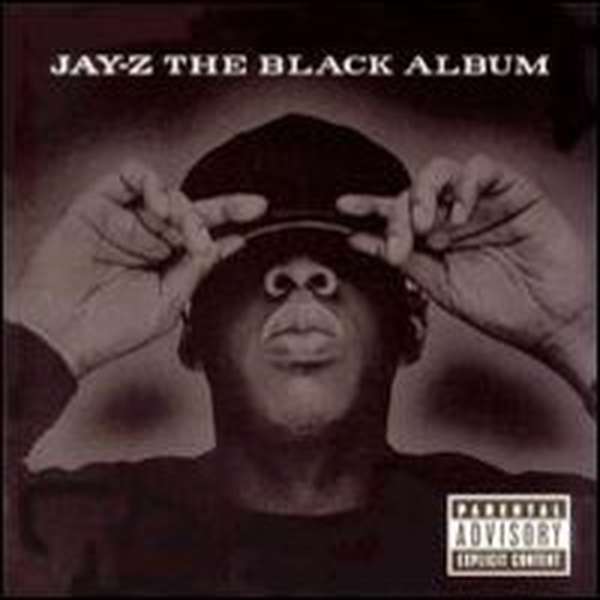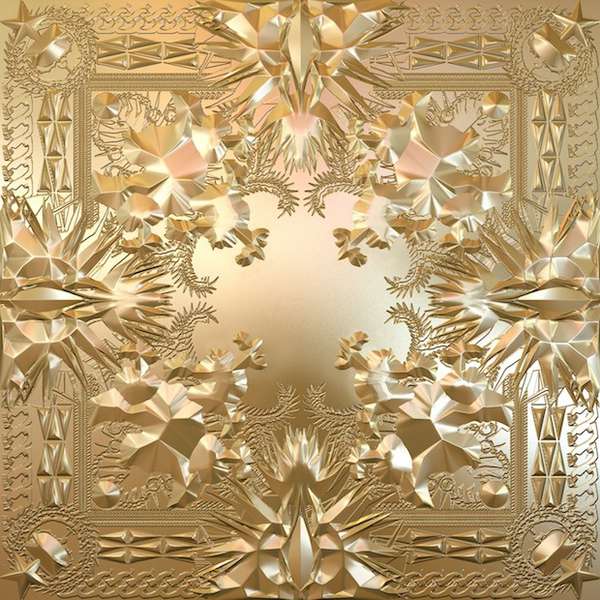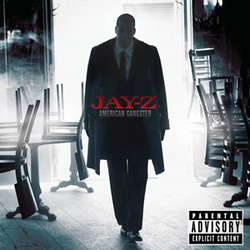Oh, the farewell. There are two kinds of retirement in music. The first is the graceful bow out of the spotlight, which may or may not be a good thing, depending on the artist, but always covers the band or artists's body of work in a veil of class and dignity. The second is a much more shameful route. Often times, in a desparate attempt to seek relevance in a music scene where there is often no longer any to spare for the particular musicians, it is decided that retirement is necessary; however, instead of walking out the door, the band or artist circles around the room a countless number of times. Since they can only milk whatever innovations or interesting qualities they had for so many albums, it is now time to milk those last few steps for every last drop. Take for instance, Zao, who have been on a farewell tour for 24 years. Once you slide your 44th letter of resignation under your employer's door, a 'Boy Who Cried Wolf' complex begins to come into play.
The Black Album is Jay-Z's supposed swan song, and it is certainly a fine note to go out on. For the past few years, Jay-Z has been on top of hip hop music. Experiencing both major commercial success and even mild critical acclaim is fairly hard to do these days, but Jay-Z has pulled it off. Though the art of the 'party jam' is a bit too sophisticated for my tastes, Jay-Z has managed to provide music lighthearted enough that it is easy to swallow for the masses, but with enough slick production and intelligent social awareness that even the indie rock critics can find salvation somewhere amongst his catalog.
When you're leaving your job, you don't really have to worry much about what you say or do in the workplace anymore. While for many that could result in an abundance of sexual harrassment lawsuits, most of them resulting from an attempt to make love to a water cooler, with art, especially mainstream art, it breaks a lot of the chains that bind an artist. Jay-Z doesn't have to worry about how he looks anymore, and that new freedom is the nitro boost that pushes The Black Album blazingly across the finish line. Not that Jay-Z has ever been cursed by the negative stigma that surrounds actually expressing real humanity in mainstream hip hop, but this new found liberty adds a level of casual delivery to Jay-Z's flow that is almost impossible to describe. "December 4th" is the first song from the record, and right from the start, Jay-Z makes it clear he has no apologies. He did what he did, and frankly, he has no qualms about it. The attacking bass and snare of "What More Can I Say?" are complimented by Jay-Z's impeccable flow, and the song's only fault is Jay's fall into hip hop cliches in which he makes it known he is the best to come out from whatever region he decides he now has reign over nowadays. The production on Black is slick nearly all the way through, the only major hitch the record hits is the Neptunes produced, "Change Clothes". Jay-Z is at par throughout the song, but the Neptunes are continuing to make music a much more boring place. Their infamy for insidiously repetitive beats won't be brought down here, seeing as how I was almost sure, at first listen, that it was the exact same beat used in the single from the Jay-Z featuring single from the recent Neptunes record. Pharrell is all out of ideas, his terrible falsetto is in full effect here, and you'll begin to wonder why this guy ever got any serious credibility in the first place. Luckily, the record hops right back on track with the next track, "Dirt Off Your Shoulder". Wherever Jay-Z's lyrics and flows fail to captivate, the beats will, and "Dirt" is a perfect example of that. While it is a fairly simple beat that almost sounds like it could've come from a Casiotone, it holds the song strong while Jay-Z struggles to dish out the great lines and delivery he was doing earlier in the record.
The album's most surprising and charming event is the track "Moment of Clarity". While Jay-Z has no apologies about choices he has made throughout his career, he fully acknowledges that he has "dumbed down for the masses". While it may seem to you like he is stating the obvious, to be a mainstream superstar and throw out to smaller acts like Talib Kweli and Common, and acknowledge the importance they are doing, and the (at times) insignificance of mainstream hip hop, namely the overflow of monotonous party tracks, is a brave move. Jay-Z is certainly not saying that the music he has put out is not good, because he's too smart to realize that just because it's all in good fun at times doesn't point to a correlation with it lacking quality.
Jay-Z's final offering to us as music listeners, is the oh so ironically titled, "My 1st Song". It benefits from the same great production that most of the rest of The Black Album finds itself laced with. It's also host to one of Jay-Z's most impressive lyrical deliveries yet, his subtle verbal gymnastics will throw your behind off of the premises like James Avery on DJ Jazzy Jeff. It's certainly not the best track he's ever put together, but it's a nice finishing note for a notable career.
The Black Album offers us both a look back on Jay-Z's career and look forward towards what hip hop might look like without him. While it's certainly a shame to see one of the most respectable acts in mainstream hip hop step out of the limelight, it's always better to leave too soon than to leave too late. If Mr. Carter can stick to his promised retirement, he just might always be remembered as a hip hop legend, whether it be his smash hits like "Hard Knock Life" or "Big Pimpin'", to his unplugged performance that reminded everyone that hip hop is one of the most emotional and relevant genres in music today. Ashes to ashes, dust to dust, Shawn Carter, you're dead to us.


